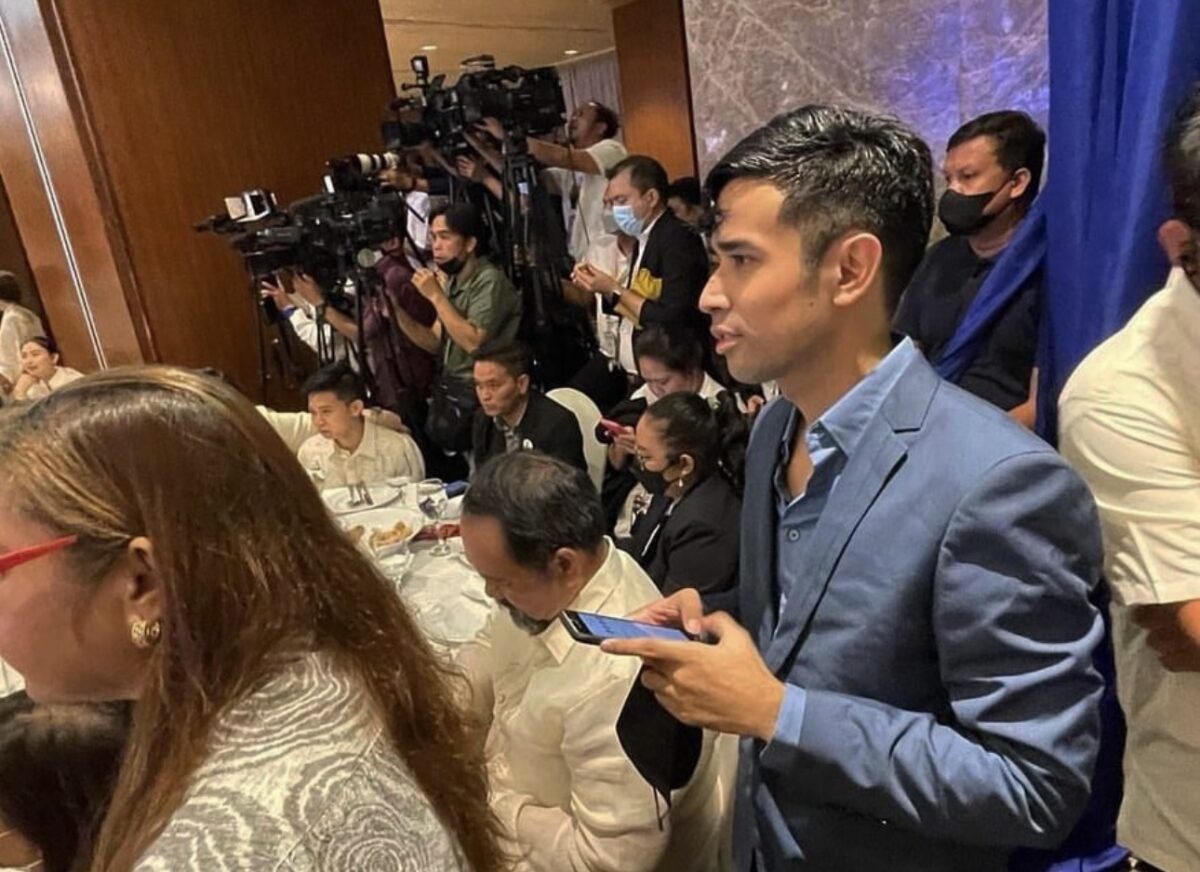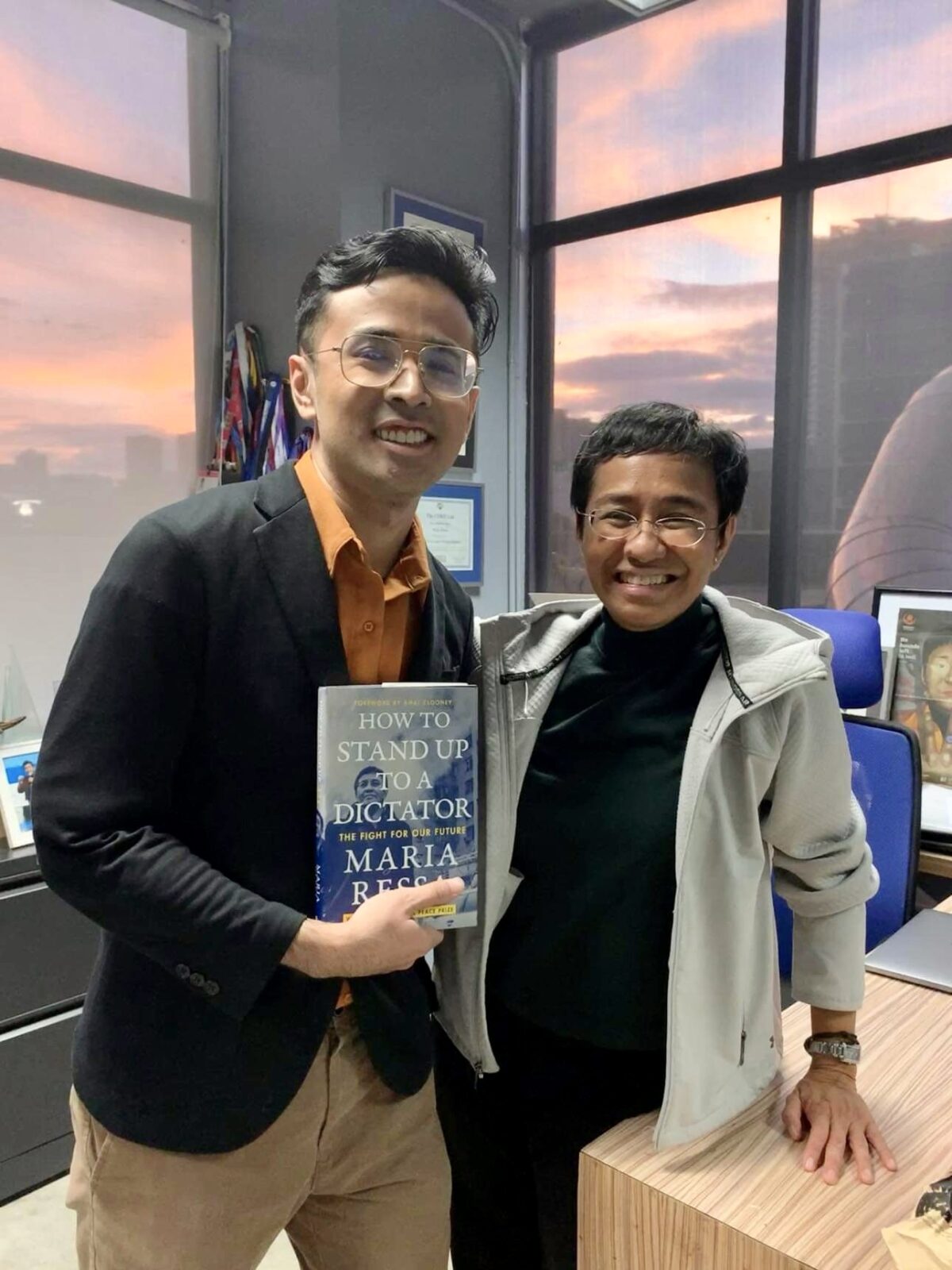 SAN JOSE Calif. – In the vibrant narrative of Filipino American connections, stories often hinge on the choices that define our sense of identity and purpose. For Ryan Macasero, a young Filipino American journalist, the decision to move to the Philippines and work there marked the beginning of a remarkable chapter – one that would challenge the traditional diaspora path and redefine his journey as a journalist and as an individual.
SAN JOSE Calif. – In the vibrant narrative of Filipino American connections, stories often hinge on the choices that define our sense of identity and purpose. For Ryan Macasero, a young Filipino American journalist, the decision to move to the Philippines and work there marked the beginning of a remarkable chapter – one that would challenge the traditional diaspora path and redefine his journey as a journalist and as an individual.
In this edition of The Fil-Am Connection, I am pleased to present an engaging Q&A with Ryan, whose 10-year journey in the Philippines offered a compelling blend of storytelling, self-discovery and the relentless pursuit of journalistic integrity. Ryan’s journey began with passion and an eagerness to immerse himself in the bustling city of Cebu (which is also my former hometown).
There, his journey in journalism took flight under the leadership of Nobel laureate Maria Ressa at Rappler, where he embraced the freedom to chase stories driven solely by public interest, unshackled by political or commercial constraints. Throughout his decade-long stay, Ryan’s work was punctuated by significant achievements, including spearheading the frontline coverage of Typhoon Odette and uncovering questionable transactions that led to the allocation of essential educational resources.
In our conversation, Ryan shares the valuable insights he gained while navigating life in the Philippines as a millennial Filipino American journalist. He recounts the dreams and challenges of the people he met, the societal issues impacting the nation’s youth, and examines a thoughtful gaze upon the Philippines’ socioeconomic landscape. His experiences on the ground have sharpened his journalistic perspective, equipping him with a nuanced understanding of the nation’s potential for transformation.

According to Ryan being a young Filipino American journalist in the Philippines presented both advantages and challenges. While the opportunity to cover historical events and create impactful stories was significant, the tough economic situation posed a definite challenge. CONTRIBUTED
Now back in the Bay Area and reporting for The Mercury News, Ryan carries forward the lessons and stories that have shaped him. The resilience, community spirit and kindness of the Filipino people are qualities he holds dear, reflecting the profound impact of his time in the motherland.
Join me as we delve into Ryan’s journey, showing a unique side of the Fil-Am connection and the impact of embracing one’s heritage on a life dedicated to uncovering truths and finding one’s place in the Filipino American narrative.
Elton Lugay (EL)—What motivated you to move to the Philippines initially, and what was your objective or goal when you first moved to Cebu?
Ryan Macasero (RM)—I was driven by curiosity and wanted some experience. In my 20s, I was more idealistic about journalism, wanting to make a significant impact.
EL—Many Filipinos aspire to move abroad for better opportunities, yet you chose to go to the Philippines. What was your reason behind this decision?
RM—It was just an exciting time to join a news start-up that gave me the space and opportunity to experiment, learn, grow and eventually lead.
EL—Were you in search of your Filipino roots during your time in the Philippines, and if so, what did you discover?
RM—In the beginning, there was definitely a search for identity, but I realized self-discovery was not about making everything about me.
EL—How long did you live in the Philippines, and what significant milestones did you experience or achieve during your stay?
RM—I lived in the Philippines for 10 years. Milestones included leading our coverage team during Typhoon Odette and investigating a questionable supplier that led to the release of billions worth of school supplies.
EL—What kind of fulfillment did you expect and find from living as a millennial in the Philippines?
RM—I found fulfillment from the stories that made a public impact, setting up Rappler’s
first regional bureau and the meaningful impact of our coverage on individuals.
EL—Working at Rappler was incredibly enriching, providing an opportunity for the most independent kind of journalism. How did it feel to work under Maria Ressa, a Nobel laureate?

Ryan on his former boss: “Maria Ressa’s leadership allowed us to produce high-impact stories without bowing to political or business pressure.” CONTRIBUTED
RM—Maria Ressa’s leadership allowed us to produce high-impact stories without bowing to political or business pressure.
EL—Do you think being a young journalist was an advantage or a challenge in the Philippines?
RM—It was both an advantage and a challenge; the opportunity to cover history and produce impactful stories was significant, but the economic situation was tough.
EL—What are the three most important lessons you learned from living in the Philippines as a millennial Filipino American Journalist?
RM—Approach the Philippines with curiosity, don’t get complacent in learning the language and avoid constant comparisons between the US and the Philippines.
EL—In your experience as a journalist in the Philippines, what are the common hopes, aspirations and goals among the Pinoys you interviewed?
RM—Many Filipinos share a desire for decent lives, provide for their families and have a willingness to do whatever it takes, including working abroad.
EL—How do you evaluate the current condition of the Philippines in terms of economic recovery, poverty, unemployment, corruption and drug abuse based on your experience as a journalist there?
RM—The economic situation is tough with inflation and corruption, but overcoming these challenges is not hopeless.

Ryan, a young reporter, wearing a striped shirt, poses with colleagues inside the Rappler newsroom after moving to the Philippines in 2013. CONTRIBUTED
EL—Based on your interviews, what would you say are the three most prevalent issues facing young Pinoys today (Philippines, not US)?
RM—Mental health, lack of career opportunities and low pay, and expensive costs of education.
EL—Do you feel the experience of living and working in the Philippines has influenced your journalistic approach now that you’re working for the Mercury News?
RM—Yes, the intense and sometimes challenging situations in the Philippines have taught me valuable lessons. I learned to breathe, analyze, and commit to decisions despite fear, and these experiences have shaped my approach to journalism at SJM News.
EL—Considering the current political administration, what is your perspective on the Philippines’ future?
RM—I am hopeful for the future, believing that collective action is powerful and hoping for a government that is truly for the people.
EL—Can you provide a comparison between the experiences and perspectives of young Filipinos in the US and those in the Philippines?
RM—I try not to compare as both groups are in search of a community, and I aim to offer grace to all regardless of differing views or experiences.
EL—What aspects of Pinoy culture and the traits of the Filipino people do you most appreciate, and which traits do you wish to bring back to the US with you?
RM—The community spirit and the way Filipinos take care of each other in difficult situations are traits I appreciate and wish to bring back to the US.
EL—Looking back, would you consider your stay in the Philippines a successful endeavor, why?
RM—Yes, it was a success, especially on a personal level. It was transformative, allowing me to learn, grow and embrace my identity fully.
EL—What prompted your return to the US after living for 10 years in the Philippines?
RM—It felt like the right time to return after a significant period covering important events in the Philippines, and I was fortunate to land a job at the Mercury News, where I hope to continue impactful journalism.

